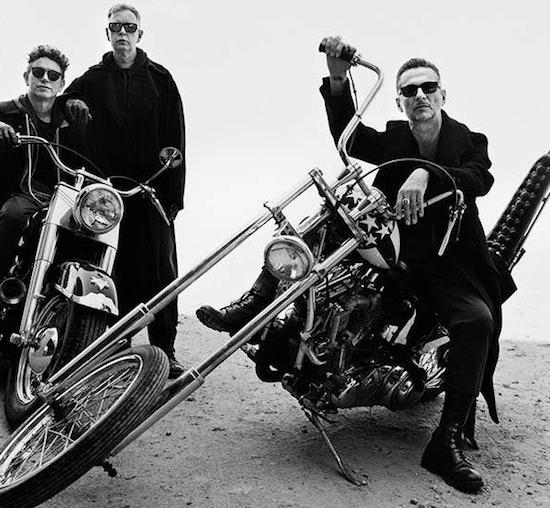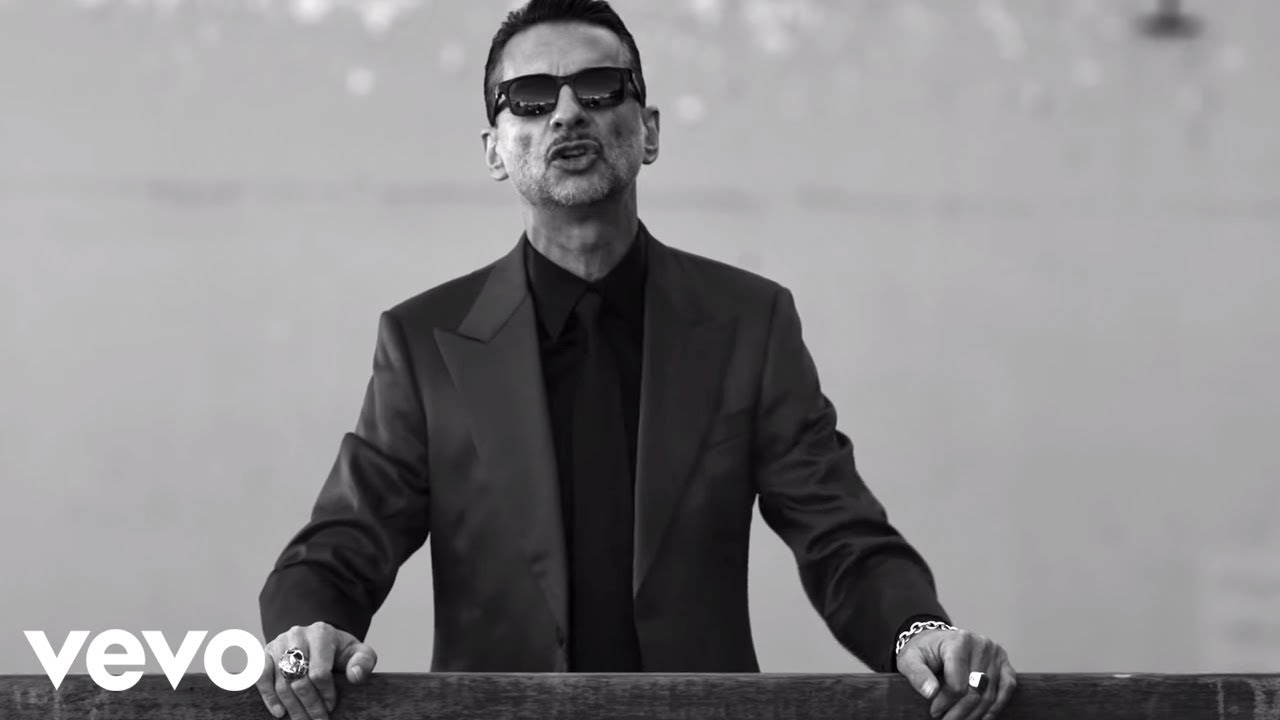Spirit is the 14th album by Depeche Mode; their second released by the label Columbia and their first produced by SMD’s James Ford. It was recorded at Sound Design (Santa Barbara, Ca) and Jungle City Studios (NYC) and will be released on March 17
‘Going Backwards’
A mid-tempo, two-chord opener, the track’s ominous overtones and sense of dread are given weight, as Dave Gahan intones, “We have no respect/ We have lost control.” As an opening gambit, it certainly sets the tone for what’s to come from Spirit’s remaining eleven tracks.
As the song slowly begins to unfurl, the bass drum kicks in followed by the snare as a skittering riff zig-zags its way over the top. “We’re going backwards,” sings Gahan, his voice portentous and devoid of mirth or joy, “to a caveman mentality” before uttering the coda over and over again, “We feel nothing inside.”
’Where’s The Revolution’
Cementing the theme of Spirit and where Depeche Mode are taking us comes ‘Where’s The Revolution’. As with ‘Going Backwards’, this is a mid-tempo number that revels in techno squelches before giving way to slide guitar, big beats and a thick bass. Lyrically, the song sees Depeche Mode occupying the political terrain that characterised so much of their earlier work such ‘Everything Counts’ or “Master And Servant’ to name but two. “You’ve been lied to/ You’ve been fed truths,” sings Gahan and it’s a song that captures the mood of the times.
’The Worst Crime’
Clearly, the mood of Spirit isn’t going to lift anytime soon. Here we move into the territory of balladry… of a type; for this is no love song but another state-of-the-world lament. A plucked and processed guitar intro is backed by sweeping and sustained synth chords that feel like some hideous omen and a warning of terrible things to come. Images of death permeate the song and Dave Gahan is in sombre mood when he sings, “We had so much time/ How did we commit the worst crime?”
’Scum’
Could it be that Martin Gore’s collaboration with former colleague Vince Clarke under the banner of the criminally under-rated VCMG has some bearing on the Depeche Mode of 2017? The evidence contained here would suggest that it does but those expecting an out-and-out banger are going to be disappointed. The BPMs are still well within the mid-tempo range but this does sound like house music on steroids. The percussion is driven by the kind of handclaps and claves that’ll have you pining for the Roland TR-808 while vintage synths swoop in and out of the track like scavenging birds.
’You Move’
Funnily enough, this wouldn’t sound too out of place on Grace Jones’ deliciously decadent Nightclubbing album. Tinkling synths comes tumbling down to land on a throbbing low end and are punctuated by squelches here and there. This is obviously the sex track but it’s difficult to shake the image of a gyrating Alan Partridge threatening to burst out of his leather posing pouch.
’Cover Me’
Another twisted ballad that’s ushered in by sweeping and sustained chords. The bass pulses like a heartbeat and the beats increase incrementally yet the pace remains measured and steady. But just as you think you’ve got a handle on things, everything gets bigger – more beats, more glacial sweeps and rhythms that suggest a re-acquaintance with Kraftwerk’s ‘Autobahn’ – except the tempo.
’Eternal’
The shortest track on the album, it feels as if it disappears almost as soon as it arrives. Huge, polyphonic chords give the sense of being in church though thankfully things grind to a halt before the collection plate arrives.
’Poison Heart’
Though the sound and power quotient increases thanks to a clanging guitar and drum combo redolent of a Detroit automobile production line, the BPMs are remaining very much in the mid tempo range. This is obviously Serious Stuff, an idea that’s given additional weight by a vocal arrangement that’s designed to recall the chanting of a chain gang. The huge string chords that are added to all of this make you realise that yes, this album really is hard work.

’So Much Love’
This is it! This is the one you’ve really been waiting for! The pace finally shifts out of second gear, thrusts the pedal to the metal and zooms off for some serious dancefloor fun. The pulsing metronomic throbs kick in right away and the vintage sounding drums are a glorious throwback to the 80s. ‘So Much Love’ stands in such stark contrast to what’s gone before it that it’s impossible to sit still through it. A dab-worthy track and no mistake!
’Poorman’
And then we slow back down again to the mid-paced tempo that dominates so much of this album. The intro of ‘Poorman’ – much like the aforementioned ‘Cover Me’ – doffs its peaked leather cap in the direction of Kraftwerk’s The Man Machine. Driven by a menacing bass-line, the handclaps and snare drum that that drive the beat once again look back to the early 80s and it’s difficult not to recall ‘Everything Counts’ thanks to the couplet, “Corporations get the breaks/ And keep everything they make.”
’No More (This Is The Last Time)’
A big thick bass-line introduces us to – yes – another mid-paced number which here is decorated by arpeggios and twinkling, blinking synths scatters that gradually build up to a crescendo before pulling back again. “This is the last time we have to ride,” we are warned.
’Fail’
And just in case you’ve been left in any doubt as to the gravity of Depeche Mode’s 14th studio album, the deep, two-note throb of this lachrymose sounding ballad gives way to steadily paced and vintage sounding drums. It’s almost as if Depeche Mode are trying to connect to a more innocent time but realise that what’s left in the past, stays in the past. You’re not going to be bouncing around to this one any time soon – or, for that matter, ever – but one suspects that that was never the intention. As a wise man once sang, “This ain’t no party. This ain’t no disco. This ain’t no fooling around.” Those days are over.




